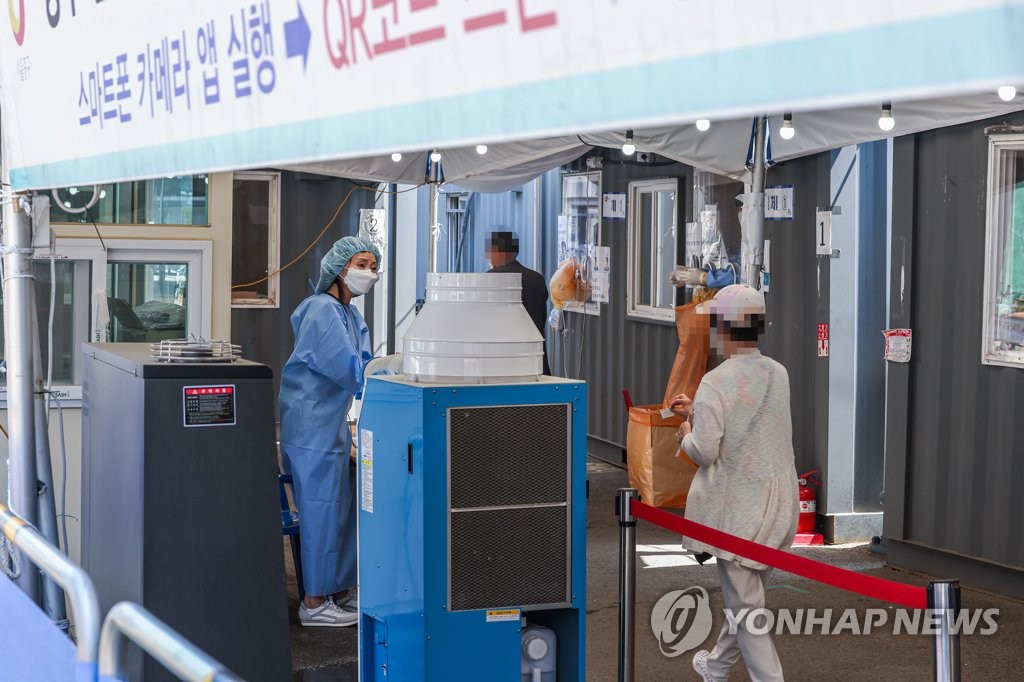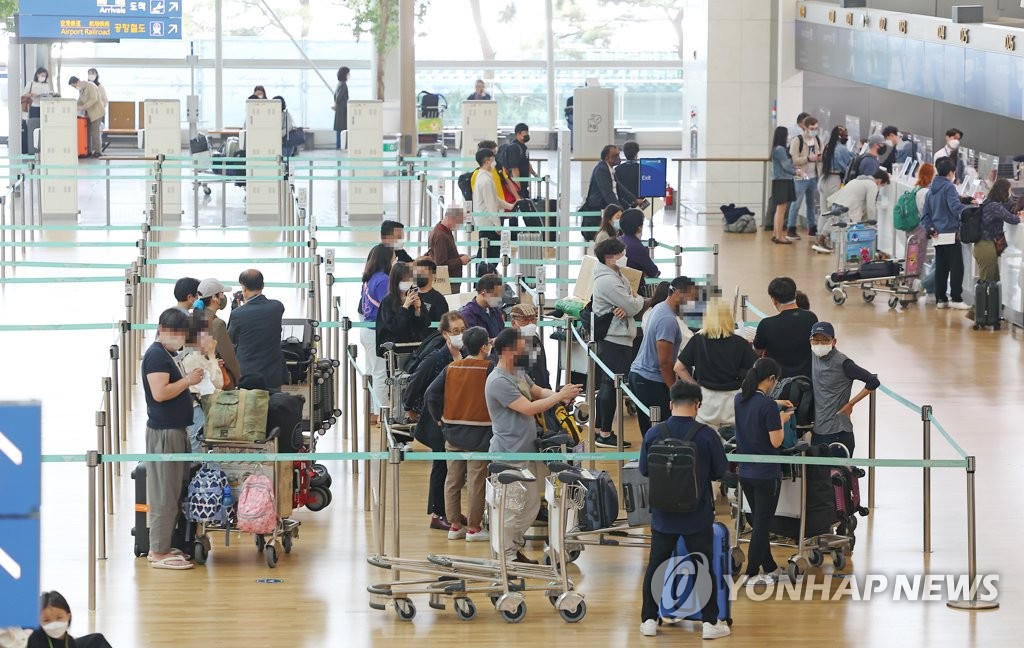- California Assembly OKs highest minimum wage in nation
- S. Korea unveils first graphic cigarette warnings
- US joins with South Korea, Japan in bid to deter North Korea
- LPGA golfer Chun In-gee finally back in action
- S. Korea won’t be top seed in final World Cup qualification round
- US men’s soccer misses 2nd straight Olympics
- US back on track in qualifying with 4-0 win over Guatemala
- High-intensity workout injuries spawn cottage industry
- CDC expands range of Zika mosquitoes into parts of Northeast
- Who knew? ‘The Walking Dead’ is helping families connect
S. Korea’s new COVID-19 cases hit 4-month low amid efforts for return to normalcy
South Korea’s new COVID-19 cases fell to their lowest tally in nearly four months Monday amid a slowing virus trend giving a boost to efforts for a return to normalcy.
The country reported 13,296 new COVID-19 infections, including 28 from overseas, bringing the total caseload to 17,795,357, the Korea Disease Control and Prevention Agency (KDCA) said.
Monday’s count is the lowest since the 13,005 reported on Jan. 26.
The omicron wave spread rapidly across the nation early this year, peaking at more than 620,000 on March 17, before marking a steady decline to the current level.
The public health agency reported 35 COVID-19 deaths, raising the total to 23,744. The fatality rate stood at 0.13 percent.
The number of critically ill patients reached 345, up from the previous day’s 338.
The government is expected to decide later this week whether to further relax COVID-19-related restrictions, particularly the seven-day mandatory quarantine requirement for confirmed patients.


A medical worker guides a visitor at a COVID-19 testing booth near Seoul Station in central Seoul on May 16, 2022. (Yonhap)
“We’re analyzing the quarantine indicators and situation regarding the preparations for the medical system,” the central virus response team said. “We are going to start the discussions within the government in earnest.”
Officials had set a four-week interim period to give time for preparations before shifting medical and other relevant procedures under a post-pandemic scheme, when they downgraded the infectious disease level for COVID-19 late last month. The interim period ends this Friday.
South Korea began to allow Pfizer’s Paxlovid oral COVID-19 pill prescriptions for children age 12 and under with underlying diseases, including diabetes and cardiovascular, renal and respiratory illnesses. MSD’s Lagevrio is allowed for those age 18 and over with underlying diseases.
The oral treatments had only been prescribed to elderly patients aged 60 and over, people aged 40 and over with underlying illnesses and those with weak immune systems.
As of midnight Sunday, 44.56 million, or 86.8 percent of the population, had completed the full two-dose vaccinations, and 33.22 million, representing 64.7 percent, had received their first booster shots. A total of 3.46 million people had gotten their second booster shots, the KDCA said.











